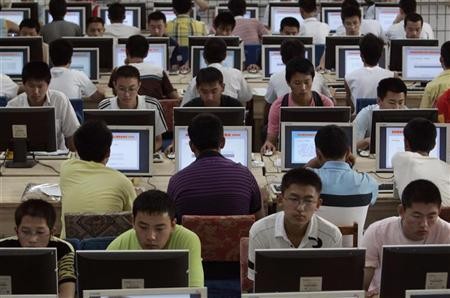Chinese Party officials have published a draft cybersecurity law that consolidates Beijing’s control over data, with potentially significant consequences for Internet service providers and foreign firms doing business in the world’s second largest economy.
The draft, which was published by state media on Wednesday, strengthens user privacy protection from hackers and data resellers and increases the government's powers to obtain personal records and block the spread of private information deemed illegal under Chinese law.
Citing the need "to safeguard national cyberspace sovereignty, security and development," the proposed legislation will allow China to bolster its networks against threats to stability and better regulate the flow of information.
Earlier in July, Beijing passed a sweeping national security law that strengthened government control over politics, culture, the military, the economy, technology, and environmental issues.
But cybersecurity has been a particularly testy area in relations with economic partners like the U.S. and the EU, which view the proposed rules as unfair to foreign companies.
Joerg Wuttke, president of the EU Chamber of Commerce in China, said that the business lobby was still reviewing the draft law but that it was "worried."
"The chief concern is that, as with many Chinese laws, the language is vague enough to make it unclear how the law will be enforced," he added.
Under the proposed law, Internet service providers must store data collected within China on Chinese territory; data stored overseas must have government approval. Network equipment must also comply with testing standards issued by China's cabinet.
The government pushed its longstanding objective of requiring Internet users to log in with their real names to services like messaging apps, although such campaigns have failed in the past.
Government agencies will also be issuing additional guidelines for network security in "critical industries" such as telecoms, energy, transport, finance, national defense and military concerns, and government administration.
Chinese lawmakers will accept feedback on the proposed legislation until early August, and it will likely undergo a series of readings and possible adjustments before being adopted and implemented.
Nicholas Bequelin, East Asia Director at Amnesty International, said that the draft law would institutionalize censorship practices that were formerly not explicitly formulated.
"[The law] would give authorities the legal power to cut area-wide Internet access to maintain order in the case of 'sudden' incidents," Bequelin said, noting a similar incident that occurred in 2009 when nearly 200 people died in ethnic riots in Urumqi, the capital of the western region of Xinjiang.



























